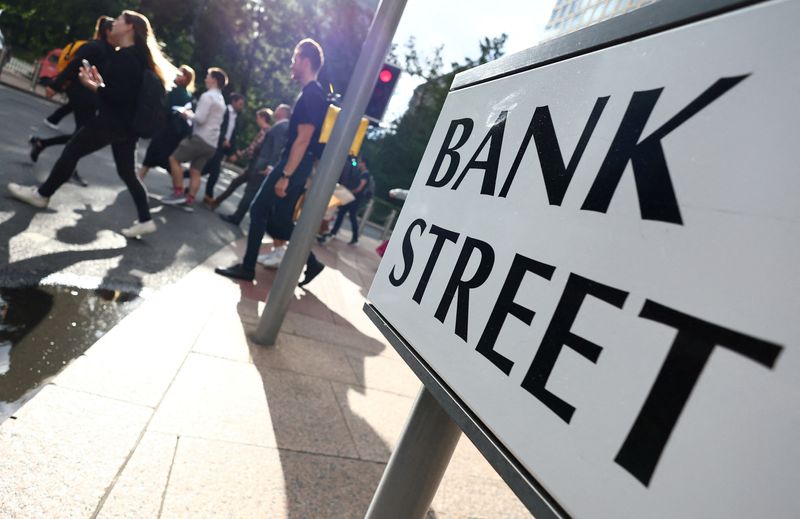(Reuters) – Sluggish global growth, a higher risk of borrowers defaulting on loans and pressure on profitability mean that banks face a negative outlook in 2024, credit rating agency Moody’s (NYSE:MCO) said on Monday.
Prior rate hikes by central banks and rising unemployment in advanced economies will weaken asset quality, Moody’s Investors Services said in an outlook report, adding that real estate exposures in the United States and Europe posed a growing risk.
Pockets of stress in property markets in the Asia-Pacific region were also likely to continue, the report said.
Global banks have reported mixed performances this year, as their consumer revenues have benefited from higher rates set by central banks to curb inflation, at the same time as investment banking revenues have been dented by a deep dealmaking slump.
Moody’s said in its report that it expected money to remain tight next year, lowering economic growth even as central banks are expected to start cutting rates. China’s growth is also set to slow amid muted spending by consumers and businesses, weak exports and an ongoing property crunch, the report said.
Bank profitability is likely to be squeezed by high funding costs, lower loan growth and build-ups of reserves to cover potential defaults, Moody’s said. However, capital levels – which underpin the financial soundness of banks – are expected to broadly hold up, the report said.
Real estate market strains have come into sharp focus this year as major landlords have encountered problems globally, including in China, Sweden and Germany.
European property and retail giant Signa declared insolvency last week, making it the biggest casualty so far of the continent’s property slump.
Paul Watters, head of corporate research for Europe at rival credit rating agency S&P Global, told reporters separately on Monday that Signa still posed stability risks to the market if the restructuring process led to distressed sales.
“It will be interesting to see how this plays out. We have not seen disorderly sales yet,” Watters said. “There is a market there for certain types of assets.”



